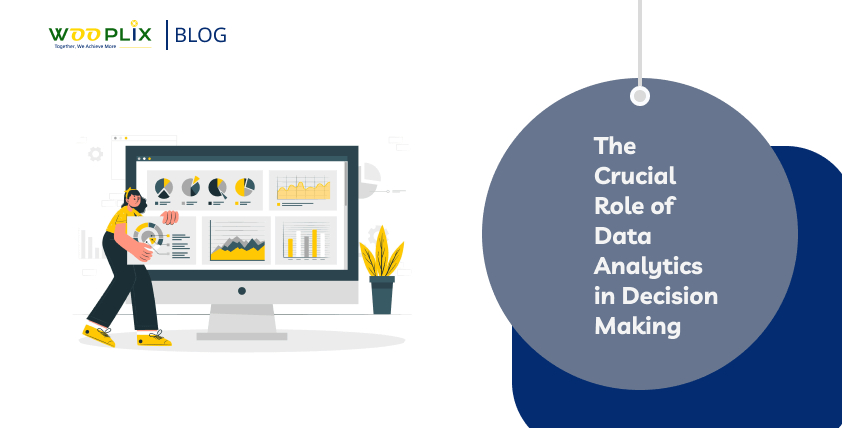Introduction
In the fast-paced and data-driven landscape of today’s business world, companies are finding themselves inundated with vast amounts of information. The ability to harness and derive meaningful insights from this data has become a cornerstone of successful decision-making. Enter data analytics – a powerful tool that not only unravels the complexities of data but also empowers organizations to make informed, strategic decisions that can drive growth and innovation.

Understanding the Data Deluge:
Data is ubiquitous, generated at an unprecedented rate from various sources such as customer interactions, transactions, social media, and IoT devices. For businesses, the challenge lies in transforming this data into actionable intelligence. This is where data analytics comes into play, providing the means to analyze, interpret, and derive valuable insights from the vast sea of information.
Enhancing Decision-Making with Data Analytics
Informed Decision-Making: Data analytics empowers decision-makers with a comprehensive understanding of their business landscape. By analyzing historical data and trends, decision-makers can anticipate market shifts, identify opportunities, and mitigate risks effectively.
Precision in Targeting and Marketing
Businesses can leverage data analytics to understand customer behavior, preferences, and demographics. This knowledge enables targeted marketing strategies, personalized customer experiences, and ultimately, increased customer satisfaction and loyalty.
Operational Efficiency
Analytics provides valuable insights into operational processes, allowing organizations to streamline workflows, optimize resource allocation, and enhance overall efficiency. This efficiency translates into cost savings and improved competitiveness.
Risk Mitigation
By analyzing historical data and identifying patterns, organizations can anticipate and mitigate potential risks. Whether it’s financial risk, supply chain disruptions, or market volatility, data analytics equips businesses to make proactive decisions to safeguard their interests.
Product and Service Innovation
Understanding customer feedback and market trends through data analytics can drive innovation. Businesses can identify gaps in the market, improve existing products or services, and develop new offerings that meet evolving customer needs.
Real-time Decision-Making
With advanced analytics tools, businesses can access real-time insights, enabling faster and more responsive decision-making. This is particularly crucial in dynamic industries where timely decisions can make the difference between success and missed opportunities.
Implementing Data Analytics Strategies
- Data Quality and Governance: Ensure the quality and accuracy of the data being analyzed. Implement robust data governance practices to maintain data integrity and compliance.
- Investing in Analytics Tools: Choose and invest in analytics tools that align with your business objectives. Cloud-based platforms, machine learning, and predictive analytics can provide advanced capabilities.
- Building Analytical Talent: Cultivate a team of skilled data analysts and scientists who can interpret and communicate insights effectively. Investing in ongoing training ensures your team stays abreast of the latest developments in the field.
- Integrating Analytics into Business Processes: Embed analytics into various business functions to ensure that data-driven insights are an integral part of decision-making processes.
The Future of Business Intelligence
As technology continues to evolve, the role of data analytics in decision-making will only become more prominent. Businesses that embrace data-driven cultures and invest in robust analytics strategies position themselves to thrive in an ever-changing business landscape.
In conclusion,
The importance of data analytics in business decision-making cannot be overstated. It empowers organizations to navigate complexity, capitalize on opportunities, and stay ahead in a competitive market. As we move forward, the businesses that leverage data analytics effectively will be the ones shaping the future of their industries.


